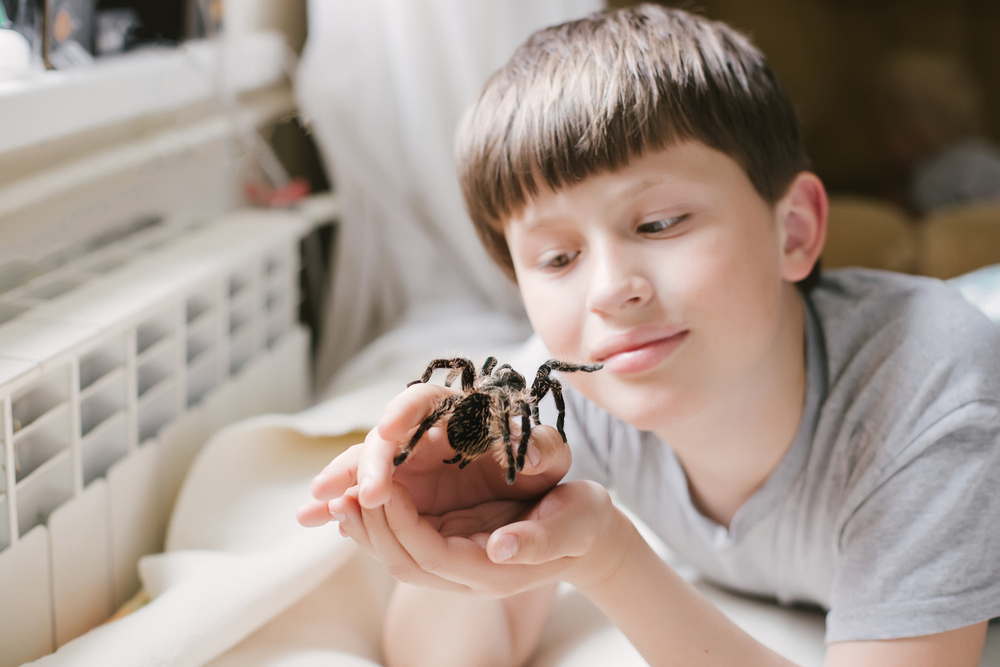The Oxford English Dictionary defines anxiety as “a feeling of worry, nervousness, or unease, typically about an imminent event or something with an uncertain outcome.”
Psychology Today asserts that “anxiety is built into our primate origins as a warning system.” Anxiety triggers the fight-or-flight response, also known as the acute stress response.
This response refers to the automatic physiological reaction that occurs when in the presence of something mentally or physically terrifying and activates the sympathetic nervous system that prepares the body to fight or flee. It causes the brain to send a surge of adrenaline (which amplifies energy output by expanding the airways, increasing heart rate and blood pressure, and redistributing blood to muscles) and cortisol (which rapidly increases blood glucose, providing a prolonged burst of energy to cope with acute stresses more effectively) throughout the body.
Anxiety Symptoms
The Child Mind Institute explains that “anxiety has many symptoms and can look very different from child to child.” A child struggling with anxiety may present with physical and/ or mental symptoms. Common physical symptoms of anxiety a young person may experience, could include, but are not limited to, any combination of the following examples, provided by Healthline:
- Stomach pain
- Nausea
- Digestive trouble
- Headache
- Sleep issues (e.g., insomnia, waking up frequently, etc.)
- Weakness or fatigue
- Rapid breathing or shortness of breath
- Pounding heart or increased heart rate
- Sweating
- Trembling or shaking
- Muscle tension or pain
Some of the common mental symptoms that a child with anxiety may experience include, but are not limited to, the following examples, provided by the Mental Health Foundation:
- Feeling detached from oneself and/ or one’s surrounding world
- Nervousness
- Irritability
- Nightmares
- A pervasive feeling of apprehension or dread
- Intrusive thoughts
- Feeling edgy, restless, or jumpy
- An inability to tolerate uncertainty
- Difficulty concentrating
- Heightened alertness
The feelings of anxiety can range from mild to severe. Although feeling sporadic bouts of anxiety is inevitable, it is atypical for a child to experience pervasive symptoms of anxiety that interfere with his or her ability to function in daily life.
Further Information and Support
For most of us, life can be very stressful, leading us to feel emotionally charged, which can cause anxiety, panic attacks, depression, and getting stuck in a cycle of being burdened with negative thoughts. Navigating through the challenges and emotional turmoil of life can be overwhelming, but you do not have to go through it alone. Engage Treatment is a Joint Commission Accredited professional psychological practice. We specialize in treating children, teens, and young adults struggling with depression and anxiety through community-focused treatment plans that incorporate a carefully selected combination of therapeutic interventions. Our compassionate, multidisciplinary practitioners are devoted to providing the highest quality of care that helps ignite positive change and enables clients to reach optimal health and well-being. Please do not hesitate to reach out for guidance. We are happy to answer questions and provide you with any additional information. Feel free to call us at 805-497-0605 or email us at [email protected]. You are also welcomed to get in touch by filling out our contact form. We look forward to connecting and having the opportunity to discuss how we might best be able to support you.
Contact Us
Westlake Campus:
IOP Program
2625 Townsgate Road, Suite 210
Westlake Village, California 91361
Agoura Campus:
Private Therapy & Parenting Program
30300 Agoura Road, Suite 250
Agoura Hills, CA 91301
805-497-0605
805-371-4862











© 2023 Engage Treatment Program, Inc. All Rights Reserved.
LGBTQ Friendly
About
• About Engage
• Our Team
• Career Opportunities
• Individual / Family Therapy
Resources
• Community Resources
• Blog
• FAQ
• Referring Clinicians
• Privacy Policy & SMS Terms






